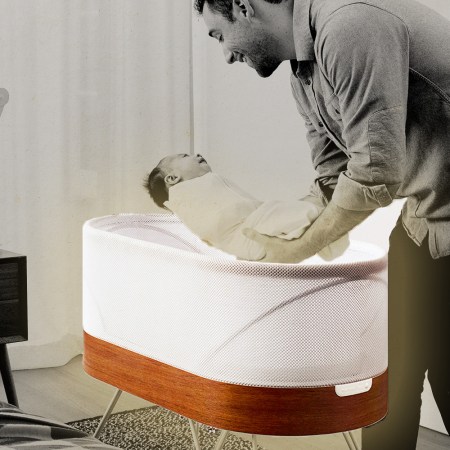Whenever a baseball player returns from paternity leave and hits a home run in his first game back, social media likes to marvel at his newfound “dad strength.”
It’s a mystical and unscientific concept, meant to capture the idea that being in charge of a helpless infant yields an extra dose of power overnight. When asked about it a few years back, an English rugby star insisted that fatherhood makes you “15% stronger.”
Is there any truth to it? Who knows? Maybe it’s all in the head — a protective superpower, like grandmas lifting cars to save children. Or perhaps it’s the literal, physical byproduct of having to carry or a push a small body around the house all the time.
But for all the focus on how young dads’ bodies look or perform differently, there’s real change going on in their brains. According to a study published in Cerebral Cortex this September, “first-time fathers show longitudinal gray matter cortical volume reduction,” which is a fancy way of saying that their brains shrink just a little bit when their first kid arrives.
That feels counterintuitive. Wouldn’t a brand new childcare adventure require the full might of your cognitive capacities? Absolutely. But the research indicates that the shrinking is strategic — it occurs only in the cortical area of the brain, which, the author of the study explains, we use to “daydream and think about other people.”
It’s a passive, unfocused region. Great for a deep-thinker with no dependents, to be sure, but not too useful for someone on 24/7 diaper-changing duty.
“Dad brain” refers to a brain that actively rewires itself after the birth of a child. It understands how to trim its own fat in order to focus on nourishing, protecting and communicating with the new baby.
This is significant research, which will hopefully contribute to policy changes in this country and the dozens of others that offer no guaranteed paternity leave at the federal level. Japan offers paid paternity leave for 12 months to new fathers. The average period in the U.S. is just one week.
Think about that: The brain has a job to do, rewiring connections and hacking away at gray matter in order to optimize care of the newborn. That connection can’t be made in seven days. It takes time, focus and sleepless nights. It’s no wonder that young parents have less time for friends, hobbies and old haunts.
And as important as work may be, it shouldn’t be surprising if they don’t have much time for that, either. It’s time that our expectations of employees reflected the fact that fatherhood isn’t just a special time in one’s life, or a chance, maybe, to feel a little stronger — it’s a brain-changing neurobiological commitment. Let’s keep that in mind next time a new dad takes a little longer to return an email.
The Charge will help you move better, think clearer and stay in the game longer. Subscribe to our wellness newsletter today.



















